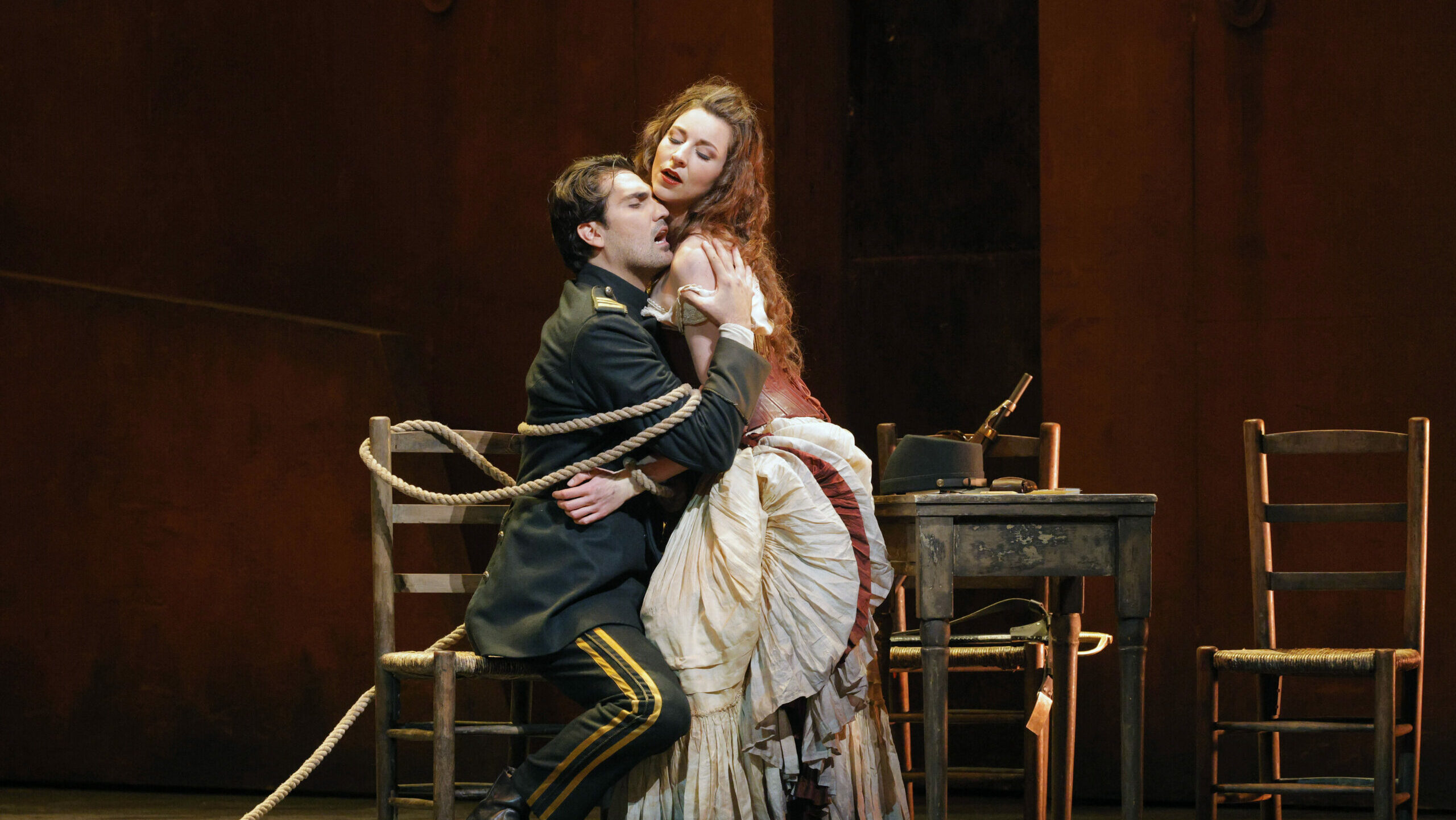
Jez Butterworth, who is perhaps the hottest young Brit playwright these days (remember his The Ferryman and Jerusalem a few years back?) has a new play in town called The Hills of California. It opened a few days ago and I got a ticket for it while it was in previews the week before last.
It is, like most of his plays, a work based in memory and in passing time and faded glory, and like Alan Bennett‘s plays (The History Boys), and other Brit shows, it draws out the evening with performances of American pop songs. We are in a seedy, overdecorated boarding house mislabeled SEA VIEW (“Poetic license,” murmurs Jill, the custodian) that takes in vacationers and two-hour couplings in a seaside resort somewhere near Blackpool. The house belongs to Veronica Webb whom we do not meet in the present (1976) because she’s upstairs, in great pain, dying of cancer. Her four daughters are supposed to assemble to give the doctor the go-ahead for an unofficial overdose of morphine. We meet the bitchy sister (Gloria), the sexy sister (Ruby) and their husbands — they both got out while the going was good — and the old maid Jill who is still a virgin. And they wonder where Joan is, not that they’ve seen her for twenty years. She ran off to California. Why? And will she make it back in time? In time for what?
Nothing is resolved, including the chords of the last song before the final curtain. And yet everything is resolved.
Act II is set in 1955. Veronica is a sexy martinet, flirting with all the men about the house (one of whom claims to have connections in the music industry), keeping her four fatherless daughters in line (what ship DID their father go down on?), rehearsing and competing and singing at open mic’s and church events. They do versions of the Andrews Sisters. They aren’t bad. But no one wants the Andrews Sisters anymore. Nostalgia ain’t what it used to be. There’s this new thing called rock n roll, and Veronica hasn’t got a handle on it yet, and the teenage girls (Joan is 15) haven’t had time to pick it up yet. And what price is Veronica willing to pay — and what price is Joan willing to pay — to get an audition with a big agent. A quiet, shadowy fellow with an eye for teenage, um, talent. Joan is singing in an upstairs bedroom — the acoustics are better than the ones in the kitchen, you see. And then she stops singing in mid lyric.
Act III is back in ’76. A strange woman in strange clothes sneaks into the house late at night, rummaging in the kitchen for booze. It’s Joan! Now a full-fledged American floozie, with California accent and far too many California experiences. Texas too. New York too. Jill barely squeaks, “Did you have to leave to have an abortion?” Joan is casual, “I’ve had a lot of abortions.” “Did you cut a record? Two?” “I deliver pizzas.” Joan has forgotten everything. Almost everything. She can’t quite bring herself to visit her mother’s room. She meets her 15-year-old self on the stairs, in that spangled pink costume. The doctor comes. They know why he’s there. They offer him a cup of tea, but he hasn’t time. He goes right up. For the sea view that isn’t visible from any window in the house.
How do we understand the passing of time in this civilization? Regnal years or eras (Elizabethan, Victorian, Thatcherite) are out, out, out. Movements of the stars are too predictable and too far away. “The War” means different things to different generations. We understand passing time by pop music. This is certainly true in Anglophonia — in the U.S. and Britain. People can list the hits as fast as you number the years. (I can’t, but I sat that stuff out.)
The Webb sisters keep lapsing or reviving into forgotten pop songs (including one of my favorites: “It Never Entered My Mind”), and the funniest of Joan’s tales concerns the night she delivered pizza to the Andrews Sisters on their hillside in Hollywood and they sang all night. Nothing else is so vivid to modern humanity as the music they danced to when they were young, and nothing brings them back to their youth like that same music, fifty years later. And thanks to modern technology, the music has not evolved — it’s the same music, the same singers, the same arrangements, the same cracks in the vinyl. I’ve got your records; she’s got you. And SHE is the past, and we’re all headed down that hole.
Laura Donnelly does an amazing star turn as the vital, sexy, desperate Veronica in Act II, then as the Yankee Joan in Act III. (She got an Olivier nomination for it and deserved it!) Helena Wilson is bleak, hopeful Jill. Leanne Best is bitchy Gloria. Rob Howell designed the amazing, cluttered turntable set (I do love a good turntable set, ever since My Fair Lady when I was eight). Sam Mendes directed. Don’t worry about the British accents — you don’t need to understand ALL the words.
Photos: Joan Marcus


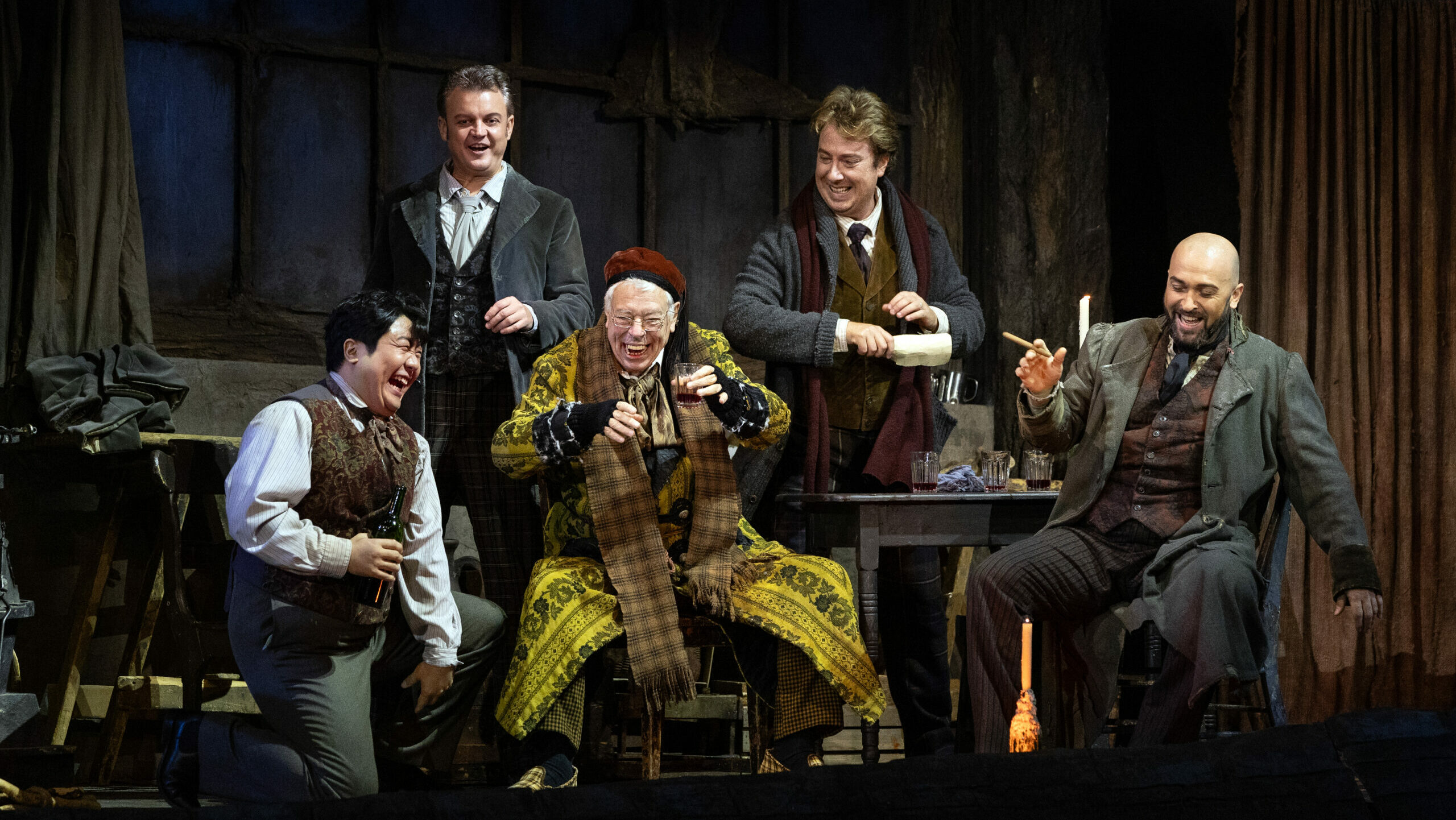
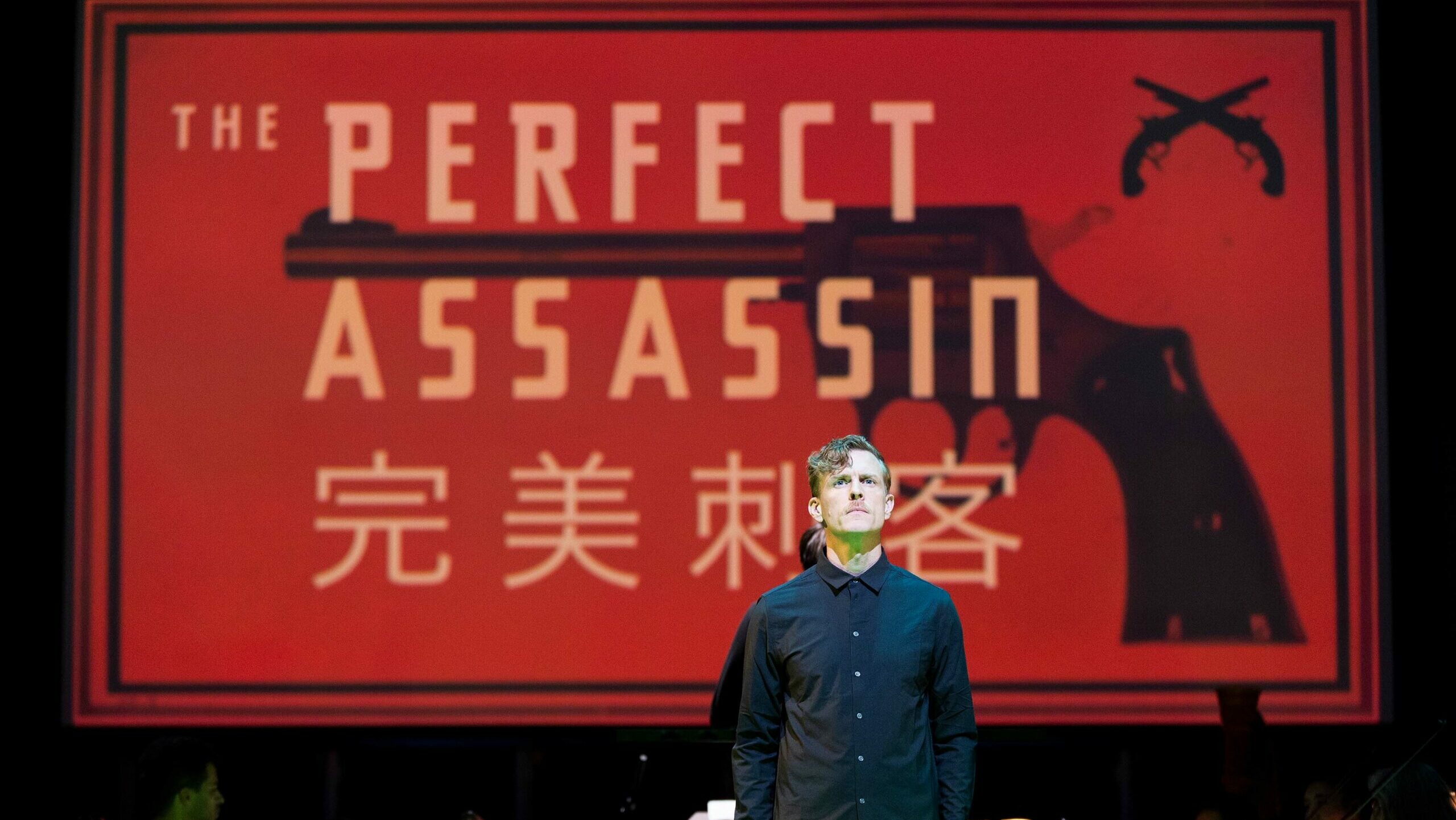
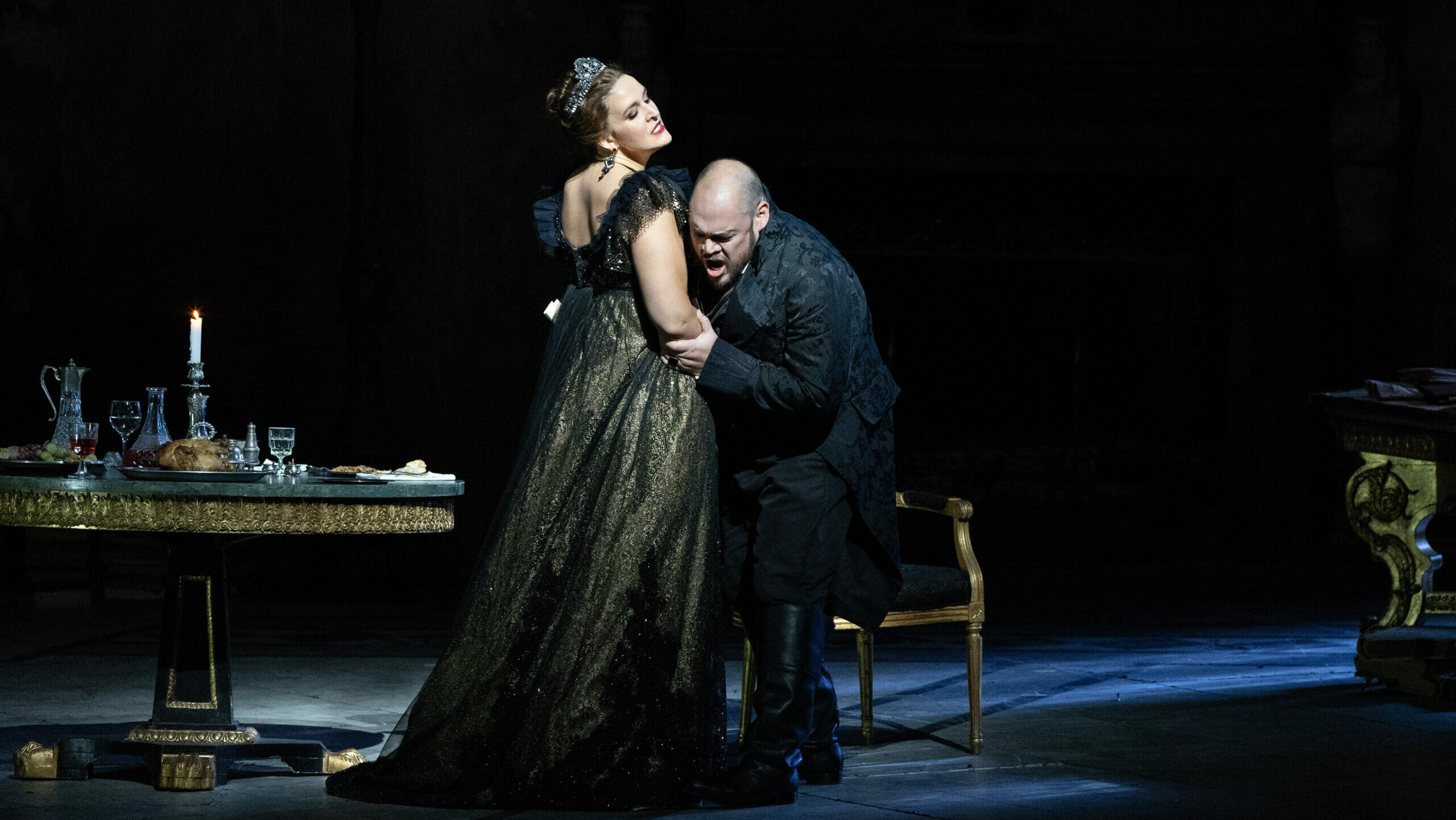


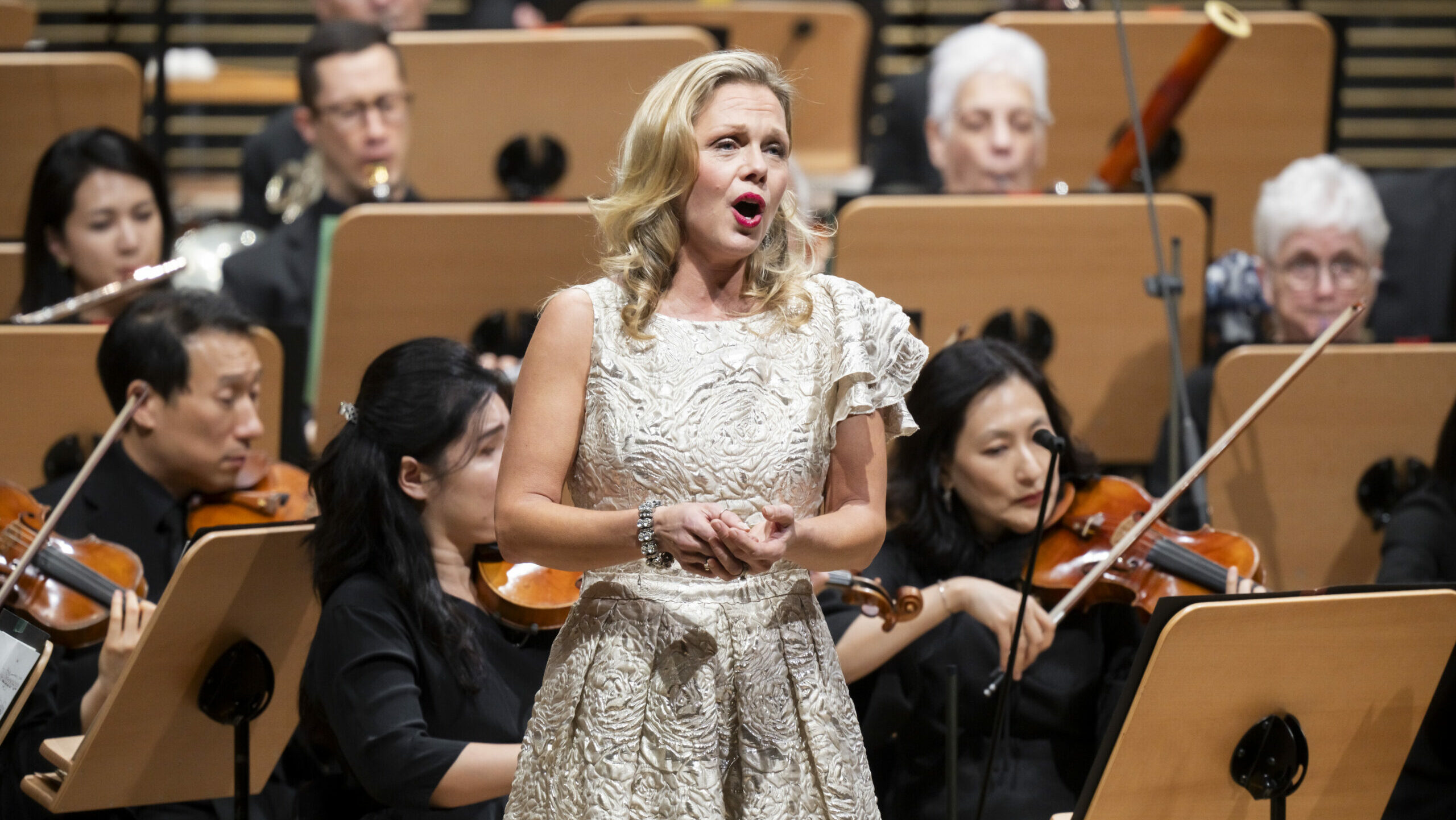
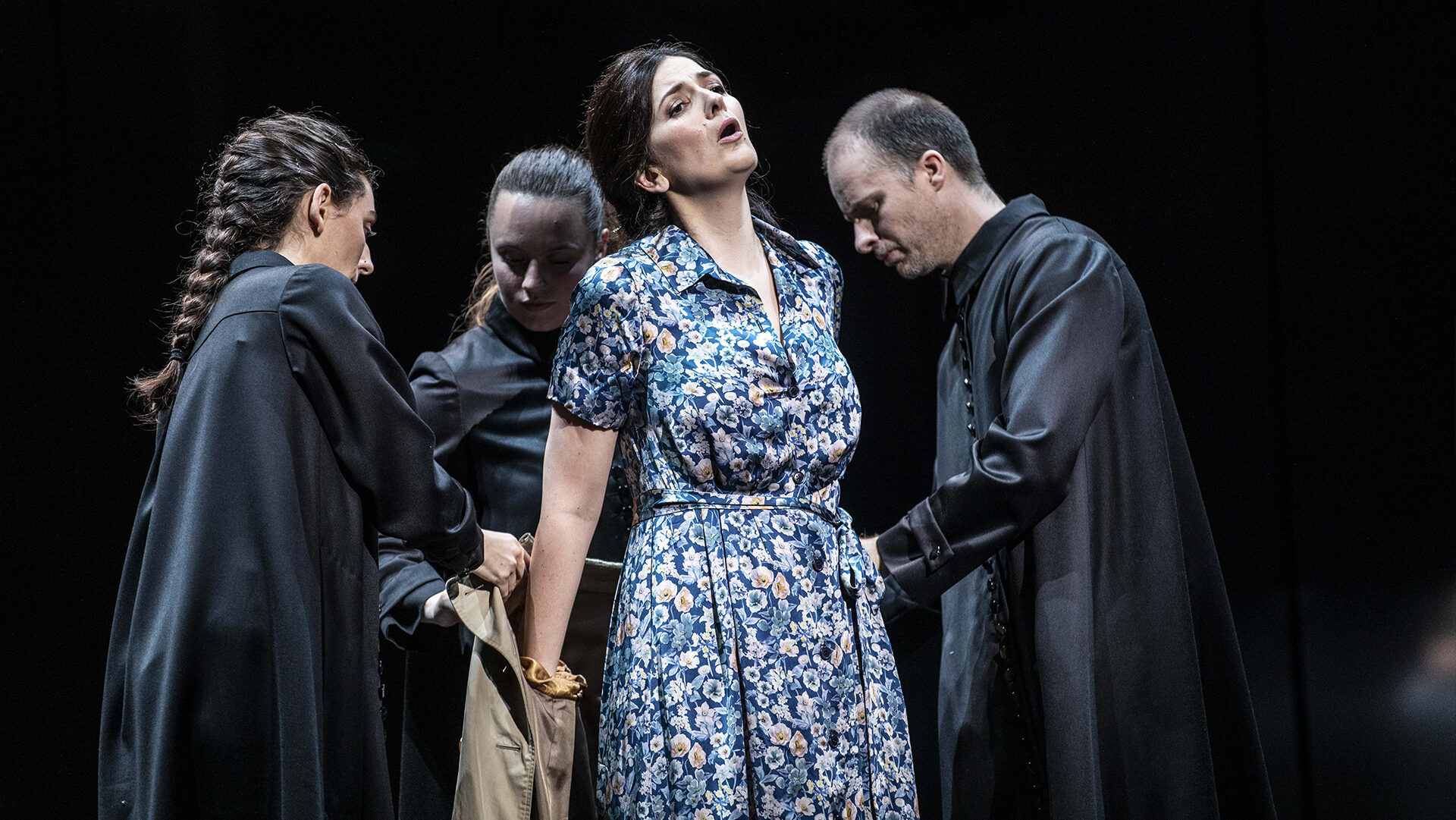
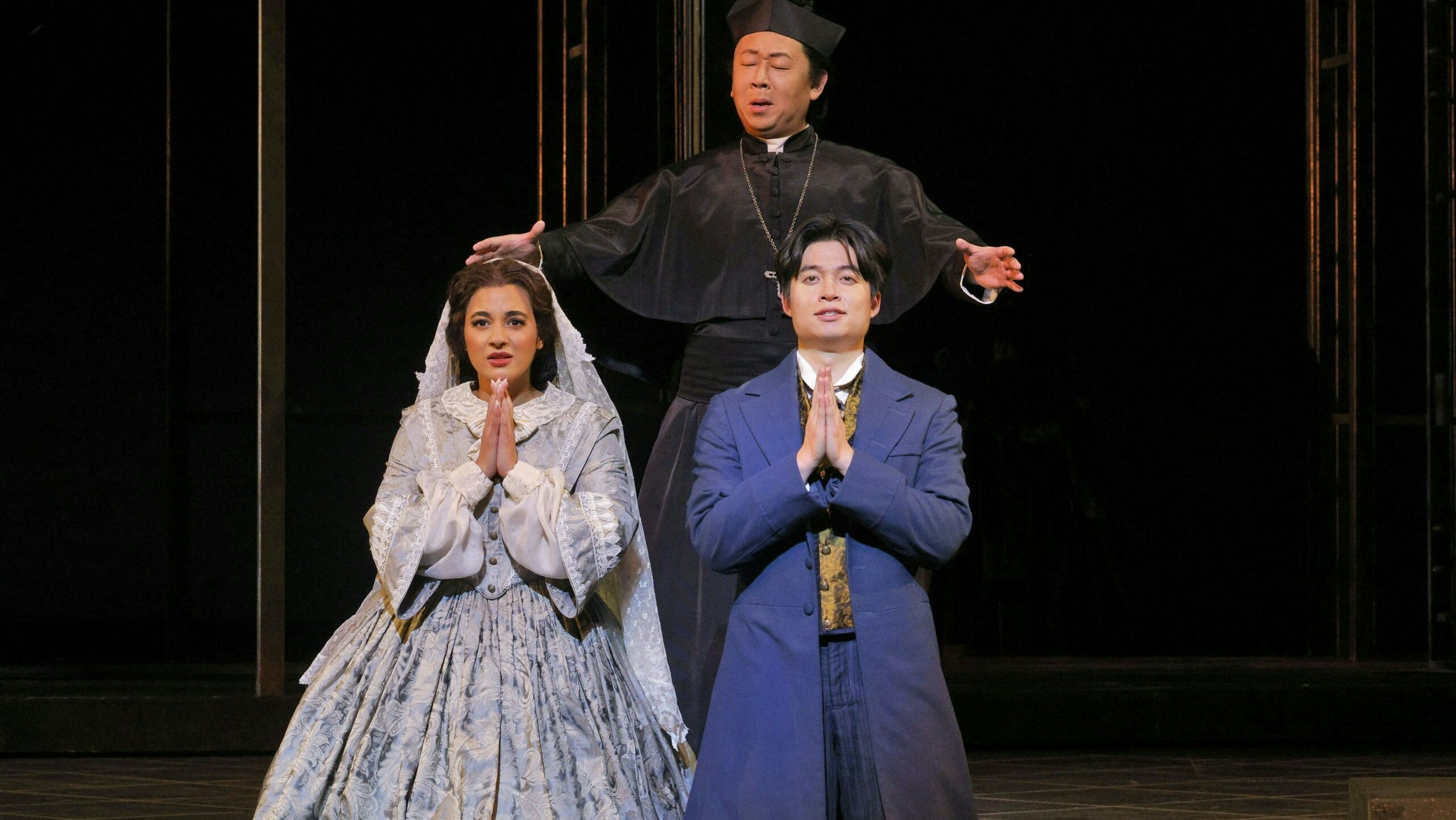
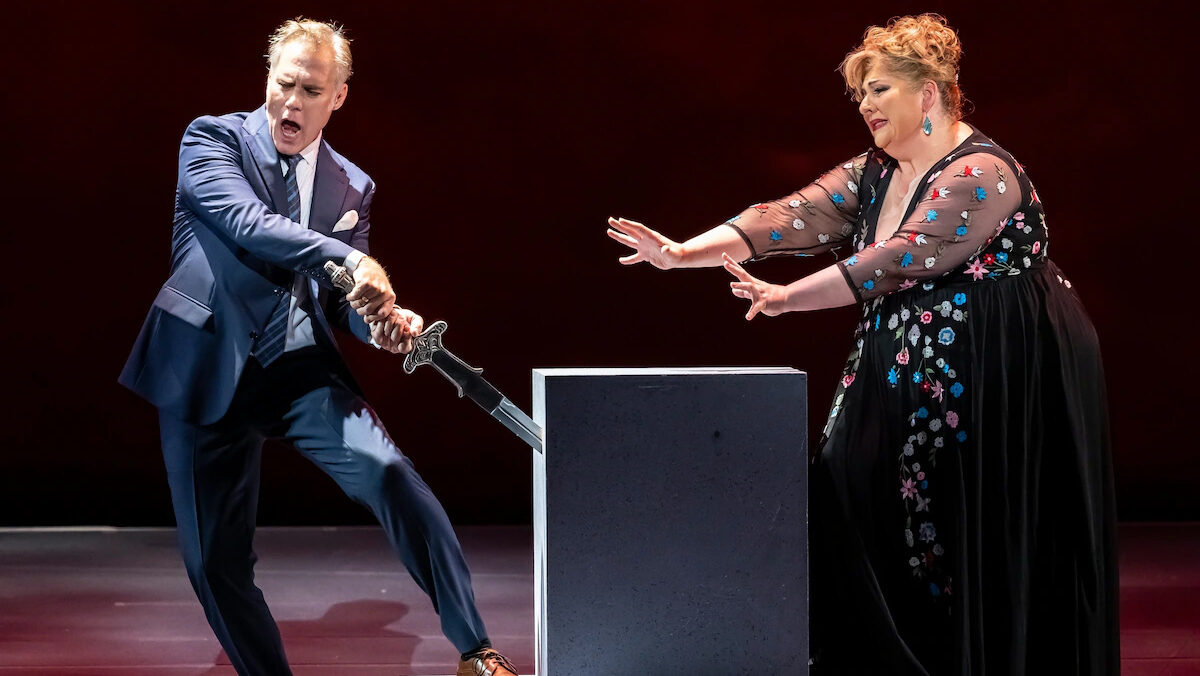
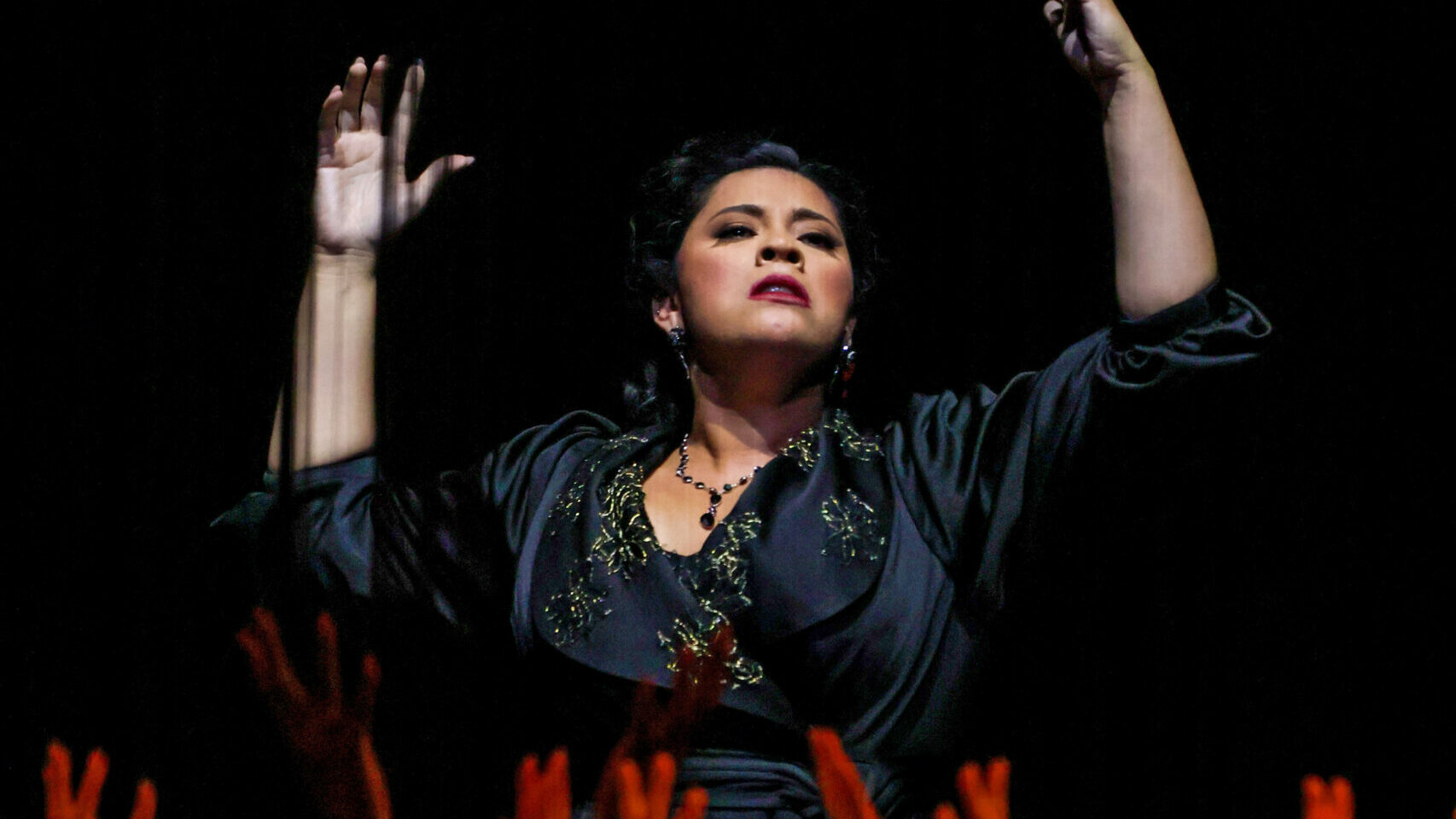
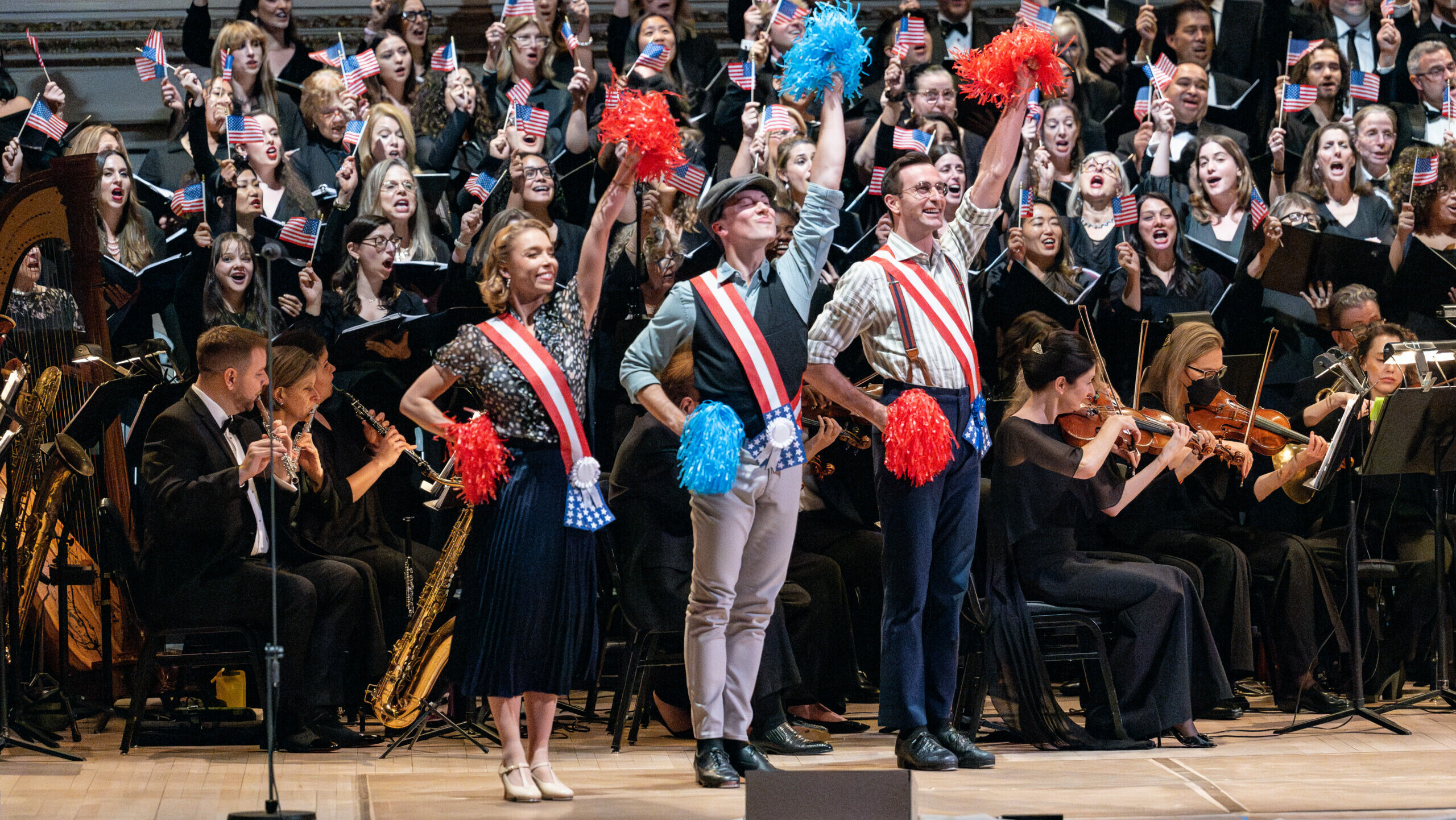
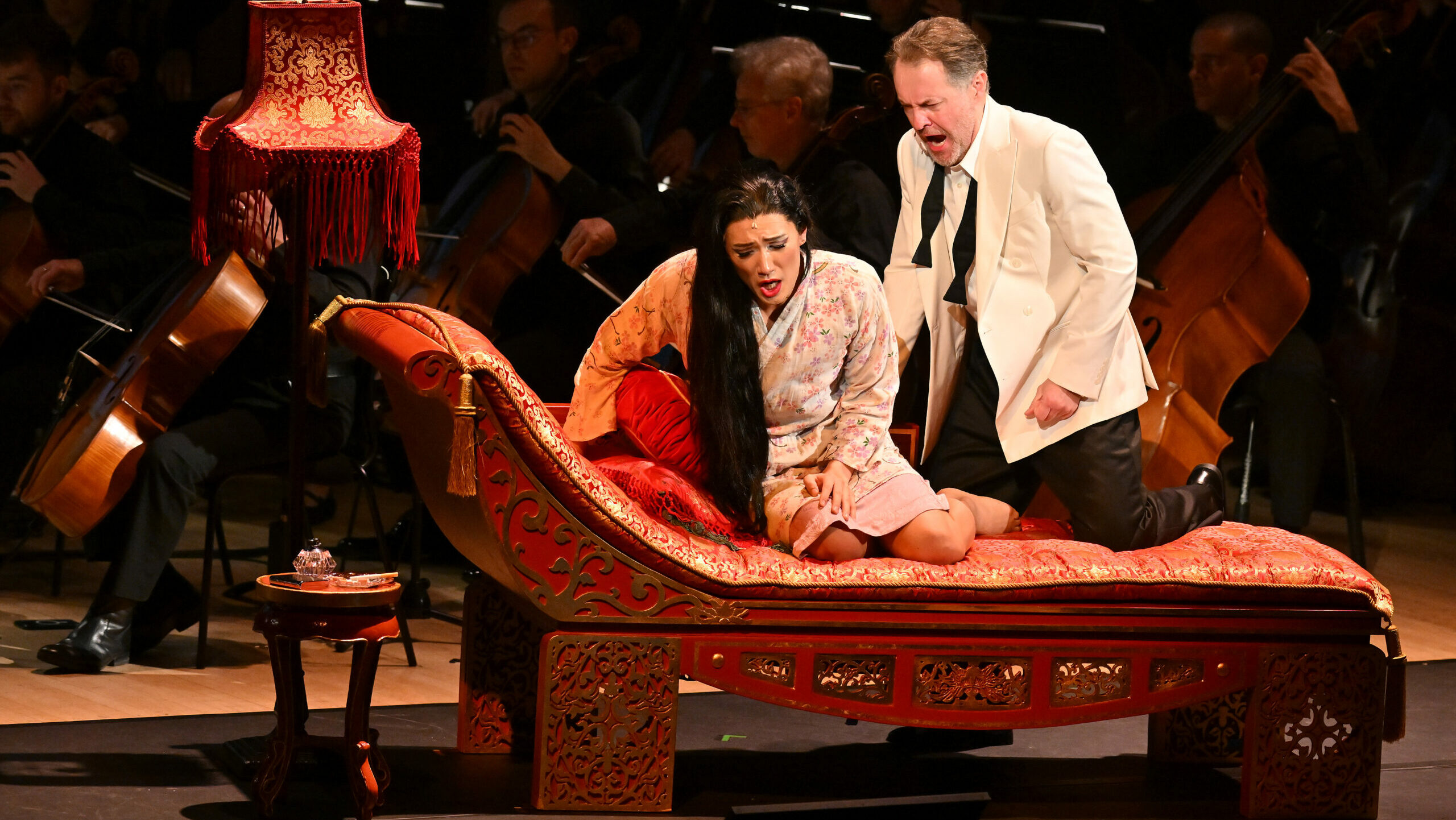
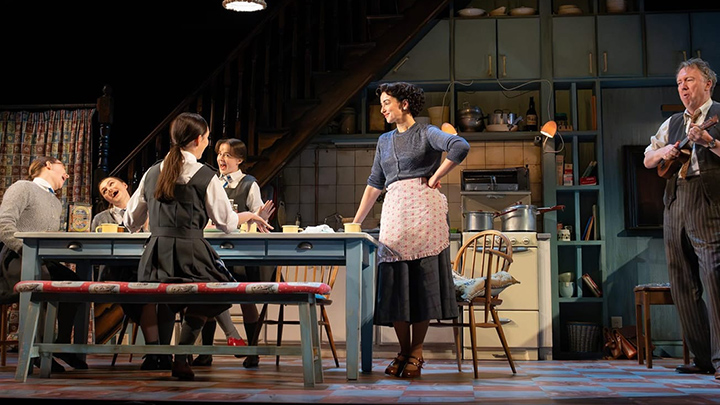


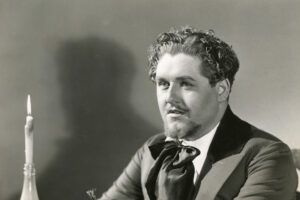




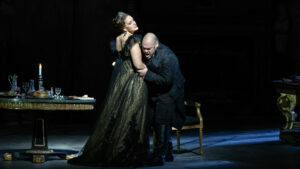
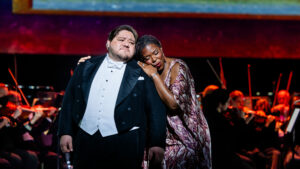




Comments